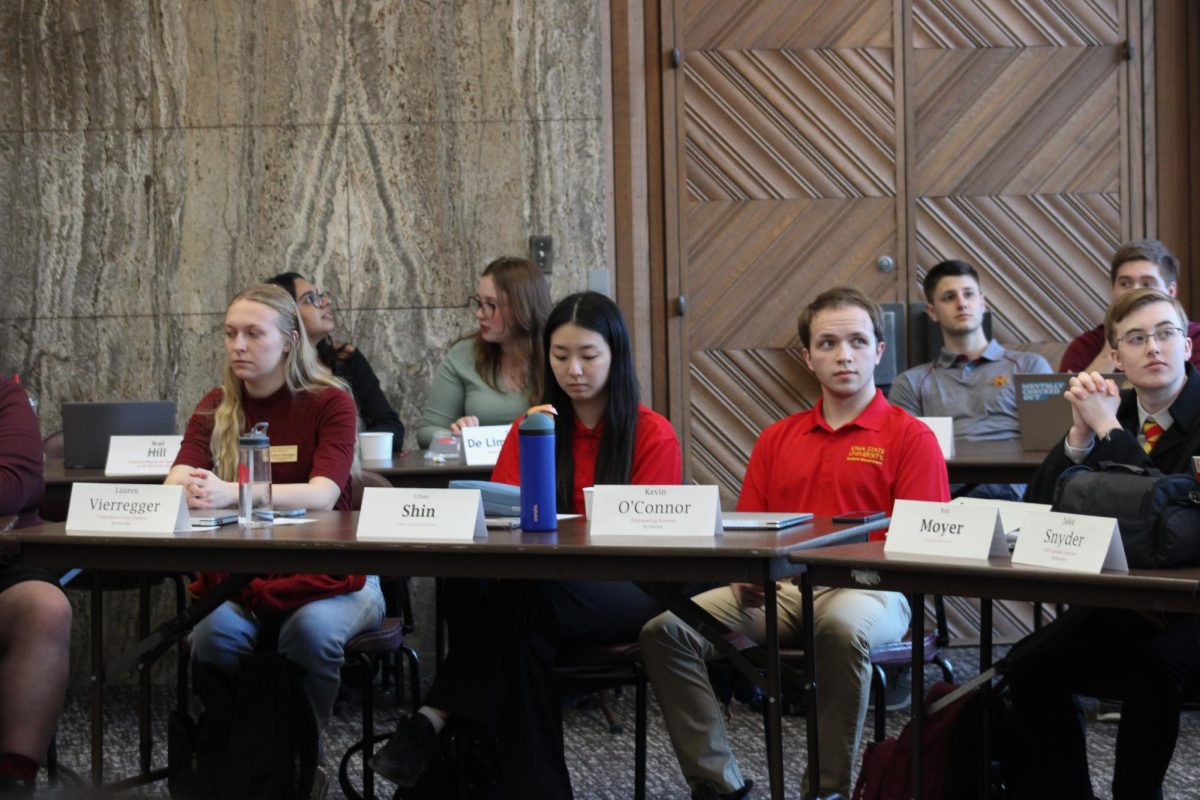Glawe: Moderate Republicans need to defend ideals
William F. Buckely took a strong stance against the John Birch Society, which shares ideals with the tea party. According to Columnist Glawe, Republicans should follow in his footsteps.
July 2, 2014
I have fond memories of my internship on Capitol Hill last summer, many of which have broadened my understanding of the political culture brewing in Washington. As I mentioned already in the Daily, I had the privilege of meeting Bill Nye, Francis Collins and other well-known faces.
It would be difficult, though, for me to place those delightful occasions ahead of the durable friendships I built during that time. These friendships crossed party lines and I found that we could have thoughtful discussions from across the aisle, absent the scant and cheap points typical of the comments section of any newspaper.
I remember frequently declining invitations to a round of drinks after work in order to spend extra time discussing policy in a Republican office with my Republican friends. A byproduct of those conversations was the subtle realization that there is still a great deal of reason found in the Republican Party, despite the festoon of superstition, ignorance and imprecision adorned by its tea party compatriots.
Safeguarding that reason is of utmost importance to the identity of the Republican Party. Where once the tea party was an asset to the GOP, it has now become a liability.
Despite taking some recent blows, the tea party movement continues to challenge “establishment” Republicans. Although it would be difficult to characterize it as a tea party victory, Eric Cantor’s defeat — and threats other incumbents still face — leaves us wondering as to what direction the Right is moving.
There is no doubt the rise of the tea party has brought about hyper-polarization and dangerous political games that threaten even the most basic functions of our republic. We need only point to the willful calamity that was the government shutdown last fall — which was even condemned by Senator John McCain, once regarded as the leader of his party, for its profound irresponsibility. I note here that the Democrats are not entirely blameless for deepening political divisions.
Threats against the establishment Republicans are claimed by many talk radio show hosts to be wholly grassroots. If that is true, which I don’t think it is, then we must admit the tea partyers represent more or less an attitude rather than an ideology.
Christopher Hitchens, once a man of both the left and the right, perhaps best characterized the movement back in early 2011. In a column published by Vanity Fair, Hitchens said that the tea party was birthed out of an anxiety of two things: “The first of these is the prospect that white people will no longer be the majority in this country, and the second is that the United States will be just one among many world powers.”
I tend to agree with Hitchens’ analysis, but I would add an extra element: credulity or a readiness to believe in anything without reasoning or proof. Claims that the president is a closet Muslim or a secret love child of Malcolm X — yes, that one exists — exemplify this disposition.
If you visit teaparty.org, give yourself the amusement in reading the poorly structured and comical “About Us” page. Written by a paltry and unlettered CEO named Steve Eichler, sexy and appealing phrases such as “We the People” are employed to gain approval and reap the benefits of credulity.
It’s drivel, in my book. It is dishonest salesmanship at its finest. Not an ounce of originality is found here. The tea party steals language from the preamble of the Constitution and tries to appear eloquent. I can do that too; so can anyone. George Orwell detested all such political language because “they are all alike in that one almost never finds in them a fresh, vivid, homemade turn of speech.”
That is markedly different from my Republican colleagues, who deserve much more respect than their radical partners are willing to give. And for God’s sakes, at least they’re original.
The Republicans who are worthy of respect are those who aren’t afraid of evidence that could usurp their positions and are willing to find a middle ground, if even for small victories. As we witnessed in Cantor’s defeat, duty to the party supersedes compromise.
What is perhaps the most dangerous aspect of the tea party is their claim to be “non-negotiable.” Politics is built upon compromise — in fact, a fair-minded public demands it. Without compromise, politics is nonexistent. The non-negotiable stance is then rendered self-defeating, unless of course the destruction of politics itself is what they seek.
The better nature of the Republican Party is gradually being swallowed whole by its fringes. The moderates, who represent the last hope for a healthy political system, are forced to their knees in capitulation by an increasingly misinformed and myopic rabble. What happened to the commentators of the right such as William F. Buckley, who, as many would have it, was the preeminent man to beat on the field of debate?
There are Republicans of such intelligence and demeanor. I have the privilege of calling them my friends. Imagine if we could return to such legendary rivalries as that between Buckley and Gore Vidal — excluding, of course, the use of such terms as “crypto-nazi” and “queer” infamously fired by both gentlemen in a vile manner. Then political discourse would at least be held to a standard of intelligence.
Buckley, if he had lived to suffer through it, would have condemned the tea party as he did the John Birch Society, of which the tea party is the modern-day version.
That demands a sort of political courage not often found these days. Without it, we perpetuate the ignorance and flippancy and leave no ground for reason and intelligence in political discourse.
Consider this a dire warning to all moderates: take back your party. As Hitchens, who often debated against Buckley and held the man in high regard, said of the tea party in 2010, “I’ve seldom seen in my longish life grown-ups behaving as stupidly and as immaturely during an election cycle in this country.”







